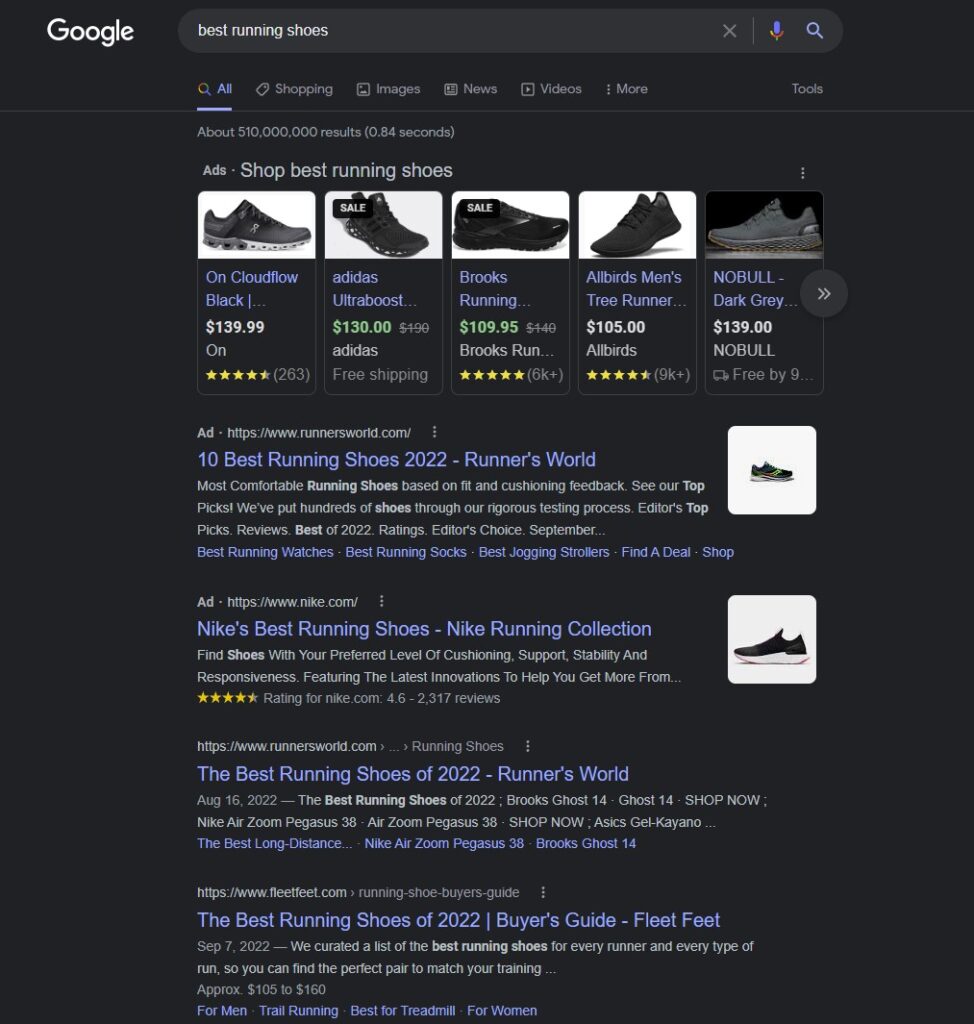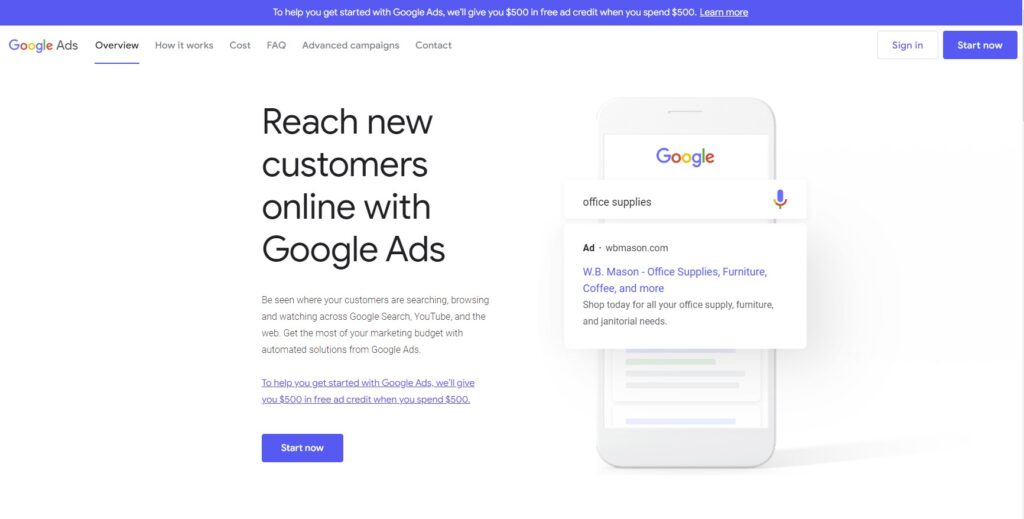So, you’re thinking about starting a PPC campaign to boost your company’s sales, but you’re not sure where to start. Fret not! This blog is going to walk you through some of the most important questions you should ask, and give you clear answers. Whether you’re starting PPC advertising on your own, or you’re working with an agency, you should always ask the below questions to better understand exactly what you’re getting into when it comes to PPC campaigns.
1. What Is PPC Advertising?
You obviously don’t want to start PPC advertising if you don’t even know what it is. PPC stands for Pay-Per-Click. PPC ads are a great way to advertise across the web. You’ll be able to show ads for your business on social media platforms, search engines, and other websites. The term Pay-Per-Click means you won’t pay for your ad until a user clicks on it. So, you’re not paying for any advertisement until you get a person to visit your site.
There are multiple types of PPC ad campaigns. For Google Ads specifically, you show shopping ads, search ads, display ads, video ads, and app ads. In the image below, you can see an example of both shopping ads and search ads attached to the keyword “best running shoes.”

2. What Is a PPC Ad Network?
A PPC ad network refers to the specific platform you are posting your ads with. Google Ads is one of the most popular PPC ad networks. There are also many more like Meta Business Suite for Instagram and Facebook Ads, and Microsoft Advertising for Bing, among others.
Before choosing a PPC ad network, you need to choose WHERE you want your ads to show. For example, if you want to show your ads on Google search results, you should NOT start building your ads on Meta or Microsoft Advertising, because those ads are unable to show on Google’s network.
Because Google is the most popular search engine, many businesses choose to start their PPC journey with Google Ads.

3. Where Can You Advertise With PPC Ads?
Choosing where to show your PPC ads is incredibly important. This is where knowing your ideal client comes into play. You want to make sure you are showing your PPC ads on networks your ideal customers frequent.
For example, if your ideal customer uses Facebook, you’ll want to publish ads on Facebook. You won’t want to show ads on Twitter, because your ideal client is not using Twitter. Placing PPC ads on the wrong networks can be a huge waste of money.
To understand where your ideal clients are, you can check your Google Analytics reports. There, you can see where your website visitors are coming from, and make an educated decision on where to show your ads.
4. Do People Ignore PPC Ads?
No! You might think people will ignore or dismiss your ads, but that won’t happen. Ads account for more than 45% of page clicks. Also, people who click on ads are twice as likely to buy your product or service than organic visitors.
Thanks to PPC ads, you can reach people who are looking to buy NOW and get their business while it’s fresh in their minds.
5. How Much Does A PPC Ad Campaign Cost?
The beautiful thing about PPC ad campaigns is you’re able to set your own budget. You can choose to just spend $100 a month on ads, or $5,000 on ads. It’s up to you!
One thing to consider when choosing a budget is the average CPC (cost per click) for the keywords in your industry. This will give you an idea of the number of users you’ll be able to send to your website with any given budget.
For example, if you want to run a Google Ad campaign in the real estate industry, you’ll pay an average of $2.35 per click (this amount is an estimated average and can change). This means each visitor from your ads will cost around $2.35 to visit your website. So, if you set your monthly budget to $100 per month, you’ll get about 42 visitors each month. If you’d like to get more visitors than that, you should consider increasing your budget.
When starting a campaign, we suggest always starting with a smaller budget. This will let you monitor the campaign and make changes and improvements to the settings. Once you’re comfortable with the performance KPIs of the campaign, you can increase the ad campaign to any budget you like. Starting with a smaller budget gives you time to make connections without spending so much money.
